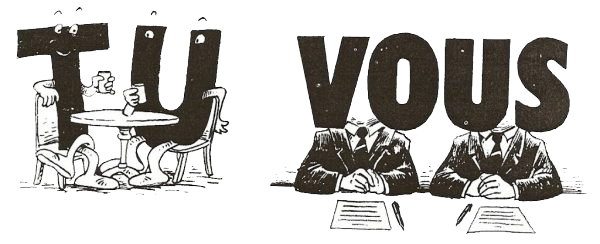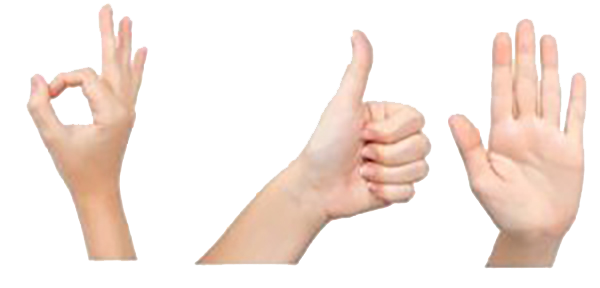Generating export opportunities in France can be challenging, especially when the culture differs to your native one. The French are very attached to their culture and social etiquette where exceptional fashion, arts, cuisine and architecture are highly regarded in both social and business situations. It is important to be are aware of these aspects and the following guidelines will help you to make a good impression with future business in France
Here are our top tips on how to get ahead when exporting goods to the French market (written by our native French team members)
1. Formality is golden
Formality is highly regarded in France. When you meet someone for the first time you should always use ‘Monsieur’ or ‘Madame’. It is the same when you talk to your superiors unless of course they tell you otherwise. But it is still very rare. Remember that using a high level of politeness is essential to make a good first impression. This is also true when you send emails to prospects or customers too.

Formality usually lasts quite long so don’t start being less formal right after the first meeting. It takes some time to build an informal business relationship, so you might have to wait a few months or even a few years to start being more casual. In the meantime if you are speaking French then continue to keep using the formal you (vous) until the person tells you that you can start using the informal ‘tu’. You need to be on very close terms with the person to use to latter and err on the side of caution until they tell you otherwise, especially in professional situations.
2. Learn the gestures
When meeting someone in a business context – for the first time or not – DO NOT use ‘la bise’ (kisses on the cheeks) as it is only reserved for friends and close relationships. Instead always prefer a brisk, light handshake. Don’t use a firm grip as it could make the other person feel overpowered and inferior.
Representation of various hand gestures

Representation of various hand gestures
The same goes with other familiar gestures that are specific to the UK. For example, you should be careful using the ‘OK’ gesture (forming a circle with your thumb and index finger). In France, this gesture actually means ‘nothing’, ‘worthless’ or ‘zero’, which is not the best response when somebody asks ‘Did you like my proposal?’
3. Punctuality
The stereotype goes that the French are not as strict towards punctuality as the British. They have longer lunch breaks (up to two hours) and don’t always arrive on time at meetings. In the UK it is seen as very rude to be late to a meeting whereas in France it is indeed treated quite casually. Arriving five to ten minutes late is ok and they won’t apologise for doing so. So don’t be surprised and think they don’t care about the meeting.
On the contrary, if conversations become very passionate, the French won’t hesitate to stay a lot longer than planned. The same goes with working hours. Staying late at the office, until 6pm or 7pm, is quite common especially in more senior positions.
Don’t forget also to make appointments for both business and social situations. In France, you can’t just arrive at a house or a meeting unannounced as it is regarded as being extremely rude.
4. Expect Interruptions
It is very common in a meeting that your French interlocutor will ask a lot of questions and interrupt you quite often. Don’t think it as rude as it is a typical conversation style. It only shows that the person is interested in you and what you have to say. The same goes for you. Don’t hesitate to interrupt and ask questions! The French are very direct people and they prefer clear, eloquent arguments. If their voice rises, it doesn’t mean that they are angry at you or don’t like what you are saying. It only shows that they are very passionate about your conversation.
Acting that way doesn’t mean that you can use this conversation style to put pressure on your interlocutor. Using an overly aggressive style won’t help you in any way. Remember that usually, decisions won’t be made during the first meeting. Someone in a senior position will make these decisions after many detailed discussions and meetings. Patience is key.
5. Business Dress Code
As it can be expected with France being so famous for fashion, your business attire should be impeccable! First impressions are highly dependent on appearance. Wearing jewellery and accessories and a quality business attire will earn you valuable points. Even low-paid, entry-level executives buy the best clothes they can afford.
Generally, dress tends to be on the formal side for both men and women, whether in business or social situations. As the French will perceive the way you dress as being a reflection of your social status and relative success, do your best to make clothing choices that are tasteful and stylish. Frenchwomen are particularly fashion conscious in both their social and business wear, and are famous for their restrained, feminine chic. Visitors are advised to dress simply and with elegance, and not put a lot of emphasis on make-up. It has to stay simple and elegant. Casual clothes should be avoided in every business situation. Don’t wear sweaters or trainers even when you receive an invitation stating “informal” dress. Informal usually means tastefully coordinated clothes.

6. Using the French language
Try as best as you can to use some French. Whilst for the Brits we do struggle with foreign languages and speaking French may be very challenging, having a business card or your marketing materials in French is at least something cost effective that you should truly consider. Not everyone in France speaks English and the preferred language when doing business is certainly French. Showing that you made an effort by translating your materials will have a positive impact on your interlocutor as will at least being able to address them with some basic pleasantries in their native tongue. A little can go a long way!
7. Gift Giving
Finally, gift giving is not very popular in business situations. To express appreciation to a French business contact, it may be better to host a special event or dinner than to give a business gift. Gifts are however expected at social events, especially to thank the host of private dinner parties. When you do give gifts, it has to be of high quality and beautifully wrapped, bien sur!
We hope you have found this article useful, if you would like to discuss how we can help you export your product to France, please contact one of our team.






